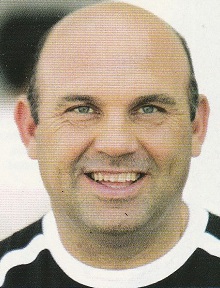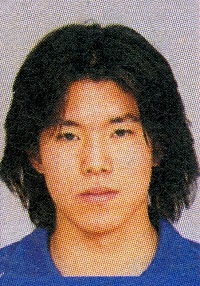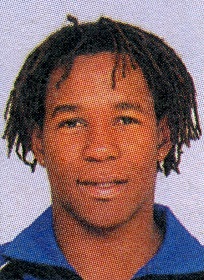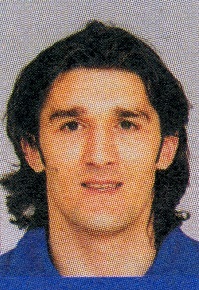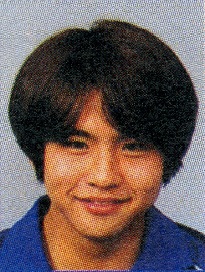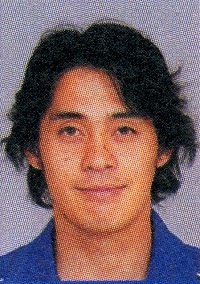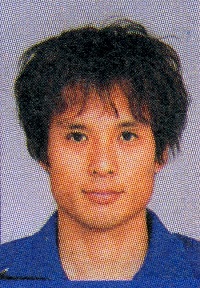C'Etait La Vie!
Frédéric Antonetti Reflects on his Time at Gamba Osaka Back in 1998.
Interview by Lionel Piguet and Alan Gibson
Recently, in between J.League matches (only four games in 11 days over the Golden Week period, plenty of spare time!) JSoccer managed to arrange an interview with former Gamba Osaka manager Frédéric Antonetti (FA) to see how he remembers his sojourn in Japan two decades ago.
Antonetti managed Gamba in 1998, taking over from Austrian, Friedrich Koncilia after 12 games, with Gamba struggling. As an aside, one of the few wins that Koncilia managed early that season was over Sanfrecce Hiroshima on a “golden goal” - remember those? Before we hear what Monsieur Antonetti had to say let's prepare the ground with a look at some of the players he inherited at the time. A number of the players that Antonetti handled were just teenagers at the time and became established, even famous in the ensuing years:
Tsuneyasu Miyamoto was 21-years-old and his future included captaining Japan's national team at two World Cups, a sojourn at Austria's Red Bull Salzburg and is currently the manager of Gamba Osaka's U-23 in J3.
Ryuji Bando was 18-years-old and had a few clubs and a few national team appearances ahead of him and is still playing in 2018 in J3 at FC Ryukyu.
Toru Araiba was 18-years-old and, to me, was to become Japan's best-ever uncapped player. It's amazing that he never made a national team appearance, but he certainly had some success with Gamba and then Kashima Antlers, and also spent some time at Cerezo Osaka. He is now an agent whose clients include an up-and-coming player named Yosuke Ideguchi!
Another 18-year-old with a life of global travels ahead of him was Junichi Inamoto and, of course, he is still playing in 2018 at the rather impressive-so-far Hokkaido Consadole Sapporo.
There was also a 19-year-old goalkeeper named Ryota Tsuzuki who slowly edged out the encumbent Hayato Okanaka to establish himself before moving on to Urawa Reds in 2003.
The foreign contingent included Cameroon international Patrick Mboma – a legend in Japan, and a former interviewee of JSoccer (and I am sure a future update will be possible). Also in the overseas contingent was Frenchman Claude Dambury, who returned to France in 2001 (and left me his boots, but I digress!), and Macedonian centre back Boban Babunski. If the name seems familiar to current J.League watchers, he is the father of Yokohama F•Marinos striker David Babunski and Machida Zelvia's Dorian Babunski. Boban is also on the list for a near-future interview for Jsoccer Magazine readers!
Gamba could also boast a couple of Montenegrins in Anto Drobnjak and Nebojša Krupnikovi? and Slovenian journeyman Amir Kari?, who managed 12 games in his stay at Gamba, during his 20 clubs in a 22-year career!
Gamba Osaka 1999
|
JS: So, Antonetti-san, what were your first impressions of Japan?
FA: It was a total change of scenery, I was born in the countryside - Venzolasca, France - which is radically different from a big city like Osaka, which was change enough, and then my first away game with Gamba was in Tokyo, so I found myself at Tokyo station, which was again, quite a change from my previous experiences. So my first impression was that it was going to be a radical change of life style.
JS: What about the team? What were your first impressions of the club that was Gamba Osaka then?
FA: It seemed to be a very well organized club with good structures in place. There were many youngsters, which is what I particularly liked about the team, as I have a formative-minded soul – I feel I am someone who likes to bring up new talent and teach them, help them improve). It was passionately interesting and a very good challenge for me.
JS: You had Anto Drobjnak with you, he came from Bastia too, did you bring him to the club?
FA: Yes, it was me who brought him to Gamba, and I also brought Claude Dambury from Gueugnon, to play in Japan.
JS: How was it for Drobjnak, who had a good career in France and Europe before coming to Japan? He didn't stay for so long.
FA: He didn't really adapt well to Japan, but mainly, I think, because had some personal problems within the family - his son was very sick - so he had trouble getting around his personal life – which is understandable, of course - and his season was difficult at the club.
JS: Japan was approaching the hosting of a World Cup at the time (although not all of the stadiums that hosted games in the 2002 tournament were complete then), what was it like coming into a league that was developing yet heading towards hosting a World Cup?
FA: It was very jovial and cheerful, some clubs were ahead of us in various ways, but the atmosphere at Gamba was really good.
JS: What about from the fans point of view?
FA: From their point of view yes, it was always very happy and peaceful with the fans at the stadiums and there were no aggression at all, very different from what you can see in Europe where there is so much aggression in some places.
JS: You're from Corse, where you've obviously experienced the rivalry between Bastia and Ajaccio... who were Gamba's biggest rival when you were here?
FA: I think it was Cerezo Osaka, but it wasn't a big rivalry, it was two very different clubs with very two different policies. Gamba had a youth policy which paid off slowly as they won trophies not long after. That's what I did at Gamba, I feel it's my legacy... I brought many players through from the youth team. Cerezo was very different.
JS: What was your biggest difficulty in Japan?
FA: When you arrive in Japan, the most difficult thing to challenge you is the contact with the players. Most of them could not speak any English and, even though I had a translator, I didn't feel that I had any direct contact with them. I had to find a new method to communicate with them as soon as possible, so the first six months were very complicated while I made the players understand what I wanted from them but, after six months everything was clear. We worked a lot with videos and then it was easier to make them understand. So, yes, my biggest handicap after arriving in Japan without any Japanese knowledge was to get the players understand my messages (team talks, instructions from the bench, etc.).
JS: You then went back to France and I know you played an attacking type of football with Bastia and Rennes, what kind of football did you try to play at Gamba?
FA: At Gamba I especially concentrated on bringing through the youngsters. I started many young players and it was in line with the club's policies too, and probably the main reason that I came to this club.
JS: You certainly had plenty of young talent at your disposal, like Junichi Inamoto, Toru Araiba, Ryuji Bando and Tsuneyasu Miyamoto. Who are the players that impressed you the most or that you had some affinity with?
FA: Inamoto, of course – very talented. Miyamoto, too, who was a very professional player, so those two in particular, but I also remember... the centre back ... (he had to pull a name out of the memory, along with a little prompting from us!) ... Saneyoshi I think. You know this was 20 years ago (he laughs) so I can't remember everything. Those players had many qualities and the leader among those young players was Inamoto, who later left for Arsenal.
JS: Do you remember encountering any problems with the team back then?
FA: No there were no big problems that concerned me... the biggest problem I felt once in a while was that the team lacked experience, so they sometimes had trouble holding on to a result – something that experience teaches. The players were hard workers... Japanese have many of the same characteristic as Europeans, they were very serious. The squad just needed two or three more years to gain that experience to make them winner, which is what happened, of course, as the team moved forward to win trophies, so I was there to help start this new adventure and then, after I moved on, the club continued what I had started.
JS: Do you still follow Japanese football?
FA: I always look for Gamba's results, yes. They were champions, then they got relegated in 2013, then got back to J1, and were champions again. I always carefully follow what they are doing through their results.
JS: What do you think that your time in Japan brought you personally?
FA: My Japanese experience led me towards the method of working that I still use today. Working in Europe, I based a lot of my coaching on communication but I discovered that, through images and videos – which I was forced to utilise much more in Japan - comprehension cames much quicker. So, so thanks to my time at Gamba, I learned a method of coaching which I still use today, as I think its a wonderful tool to communicate with players.
JS: Let's talk a little bit about the football on that small island – Corsica – which isn't doing too well at the moment, as none of the clubs from Corsica are in Ligue 1 at the moment. What do you see as the future of football in Corsica?
FA: You know, Corsica isn't a very rich area, and, nowadays in Europe, money has taken over in so many ways, so its a bit complicated as its a land full of passionate people, so as that passion is there things are coming back and getting better. The passion is there but with economical difficulties, football in Corsica can't really compete with other teams.
JS: How can clubs in Japan, clubs like Gamba Osaka, keep their best players and compete at the highest level?
FA: An excellent youth system and then the post-youth system is the only way. It starts with the formation of players from 14 to 18 years old then it continues with taking care of them and developing the players from 18 to 21 years old, you have to take care of them very well in that time. If you have good scouts, a good recruiting team and good youth to develop, you can compete with the best. So you have to scout thoroughly, recruit well, bring up the youngsters and develop them. They are worth the time. I think its a good policy.
JS: Do you have a message for the fans, or for any of the players you coached back then?
FA: I have some excellent memories from my time in Japan and as I said, I learned a lot and perfected my methods by coming to Japan, so it was an excellent thing to come to Japan and I regretted having to leave so soon, but I had to, due to my family circumstances. I would really like to know what became of all the players I worked with but with the distance it's a bit difficult. It was definitely a very pleasant part of my life.
JS: Some of the players you managed back then are still playing, such as (see our pre-interview list) Junichi Inamoto, Ryuji Bando and Masashi Oguro, while Tsuneyasu Miyamoto is now Gamba Osaka's Under 23 manager in J3.
FA: I am not surprised at all by Miyamoto moving into coaching, he always had the aptitude to become a coach. He was smarter than most players, for sure.
JS: When a club - like Gamba this year so far - is having difficulties adapting to its new coach's method and philosophy, how can the coach turn it around? What should he be doing to improve things?
FA: What you have to know is that every single club goes through such problems during the season. Every season. It's the coach's duty to find the right system to highlight his players' qualities. Then you have to give a style to your team that suits the players you have. For example, in the defensive area, should you go and press your opponent higher or should you wait in your own half? On the attacking side, should you counter attack? It's the players' characteristics that will lead the way to how the coach will end up playing. This is only one aspect of the coach's job, of course. He also has to take care of his players' confidence and be aware of their mental states. It's not just on the field.
JS: Japanese clubs often seem to not take the AFC Champions League seriously by fielding many of their “lesser” players, what do you think about this?
FA: It's sad that Japanese clubs aren't fully concentrating on the Champions League. Confronting different football and different cultures is a source of progress. I don't know why Japanese clubs rotate players so much in the Champions League and don't seem to take it seriously.
JS: Frédéric, merci beaucoup, thank you very much for your time. It's great to look back to what seems so long ago and hear your memories. Let's talk again sometime!
Hits: 4621

